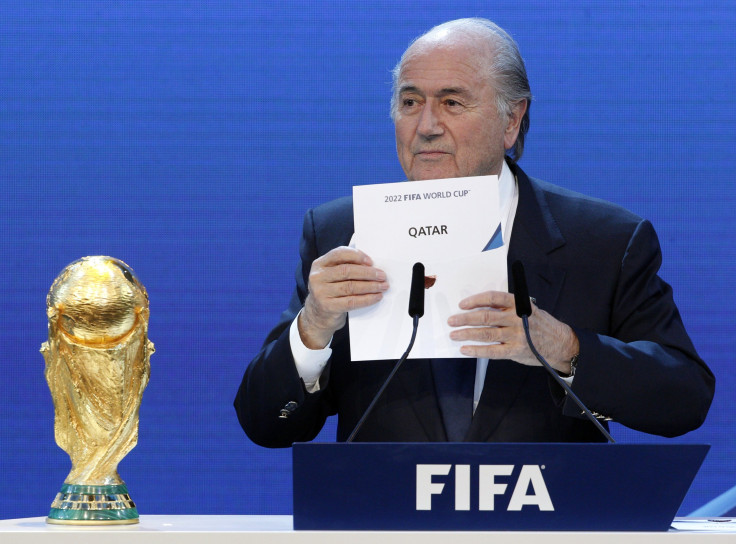World Cup Qatar 2022 News: International Soccer Games Played In December?

Confirming a task force recommendation, FIFA announced Thursday that the 2022 World Cup in Qatar will take place in November and December with the final to be held on Qatar National Day, Dec. 18. The change from the customary summer schedule sparked criticism from European soccer organizations when it was recommended in late February.
The winter schedule would directly conflict with many league seasons and competitions. The umbrella organization Association of European Professional Leagues said it would “cause great damage,” and the chairman of England's Football Association vowed to fight proposals that had the final on Dec. 23, according to the Guardian. The Dec. 18 final might please the FA, since it could allow for England’s traditional Boxing Day club matches to occur.
FA Chairman Greg Dyke opposed the winter tournament, but previously commented that it might be the best alternative besides moving the tournament from Qatar.
“The best option would be to not hold it in Qatar,” he told the Guardian in February. “But we are now beyond that so November/December would seem to be the best of bad options. It will clearly disrupt the whole football calendar as it means club football stopping at the end of October.”
The leagues are expected to earn compensation from FIFA for lost earnings due to the change in schedule, according to the Sunday Telegraph. The date of the tournament was moved due to summer temperatures that can reach above 120 degrees Fahrenheit.
Qatar surprisingly won the bid for the 2022 competition amid allegations of bribery and corruption, and the tournament has been the subject of much debate since it was announced. Qatar was awarded the World Cup over the United States, South Korea, Japan and Australia.
© Copyright IBTimes 2024. All rights reserved.












